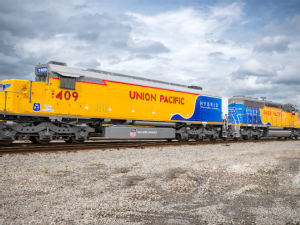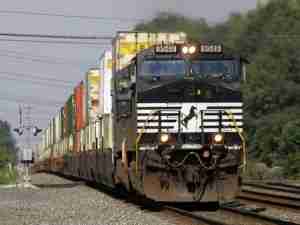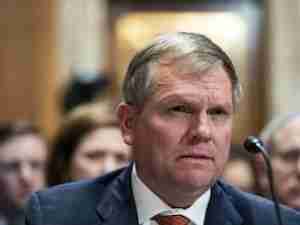Russian Railways, Russia's biggest civil employer with a workforce comparable to the size of the armed forces, plans to raise at least $3.8 billion by selling a 75 percent minus two shares stake in Freight One at an auction.
Steel magnate Vladimir Lisin and billionaire oil trader Gennady Timchenko are expected to bid for the company, which owns 21 percent of Russia's rolling stock, and chief executive Vladimir Yakunin said the economic climate was now the only obstacle to a successful sale.
"The only concern I have (over the sale) is this fear that the world's economic and political leaders will not be able to find a reasonable solution to the economic and social situation in Europe and America," Yakunin told Reuters in an interview at Russian Railways' Moscow headquarters.
"If there is a second wave of the crisis, the recession will hit the entire global economy again. I suppose it could be much longer than the first wave," said Yakunin, a close ally of Prime Minister Vladimir Putin.
Asked if this could affect the sale of Freight One, he said: "Of course. During the crisis, prices fell by 50 percent ... In these circumstances how do you think the buyer would come up with the money to buy the rolling stock?"
Batometer of Russian Economy
Russian Railways, which has a vital role carrying freight and about 1.3 billion passengers a year across the world's largest country, generated revenue of nearly 1.33 trillion roubles ($38.6 billion) last year and accounts for about 2.5 percent of gross domestic product.
It employs more than 950,000 people, controls the world's second biggest rail network after the United States and is often seen as a barometer of the Russian economy.
"There was a statement by the prime minister. He said once that if one wants to know what's going on in the Russian economy, just check the papers about cargo operations on the table of the Russian Railways president," Yakunin said.
He has overseen structural reforms at the company since he became chief executive in 2005, and announced the sale of Freight One under a plan to raise funds to invest in new infrastructure.
Competition could be fierce. Lisin, listed by Forbes magazine as Russia's richest man with a $24 billion fortune, is bidding for the company through his transport company Universal Cargo Logistics Holding (UCLH).
He is expected to face a challenge from mining supply group Transoil controlled by Timchenko, long an associate of Putin. Bidding starts at just over 125 billion roubles ($3.8 billion).
Russian Railways raised $400 million from the initial public offering of cargo unit Transcontainer last November, and has government permission to sell 50 percent plus two shares in the $1 billion-rated company in 2012 or 2013.
Other changes under Yakunin have been the introduction of high-speed trains between the capital Moscow and St Petersburg, Russia's second city, although other lines and trains remain in need of improvement.
This is becoming more important as Russia prepares to host the 2014 Winter Olympics and the 2018 World Cup soccer tournament.
"My task is to make the company more effective, more profitable and more respected," said Yakunin, who worked at the Soviet diplomatic mission to the United Nations from 1985 until 1991 before going into business.
More Needed than just Privatisation
The Russian rail network has come a long way since it was overseen by Bolshevik revolutionaries Leon Trotsky and Felix Dzerzhinsky, whose portraits hang with those of other former railway ministers in a corridor at the company's headquarters.
The government has announced plans to sell a 25 percent stake in Russian Railways under a privatisation plan intended to raise up to $50 billion over five years. But those sums and the timeline are now in question after the departu







